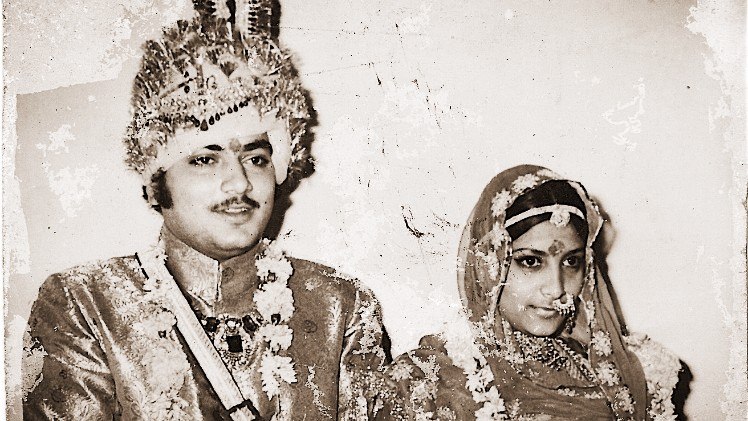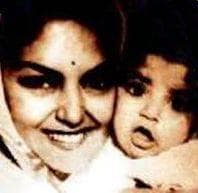
Time has a way of blurring events, but some stories continue to resist closure. One such story is that of Rao Raja Hukam Singh, better known as Tutu Banna - the royal who lived boldly, and died violently.
More than four decades after his killing, the mystery around his brutal killing on the night of April 17, 1981, continues to hang heavy in Rajasthan's royal corridors.
The Prince Who Never Fit In
Born in 1951 to Maharaja Hanwant Singh of Jodhpur and his second wife Zubeida, Hukam Singh's story began with loss. His parents were killed in a plane crash in 1952 when he was barely a year old. The infant prince was then raised by his stepmother, Rajmata Krishna Devi, alongside his half-brother, Maharaja Gaj Singh II, the present head of the royal family in Jodhpur.
Hukam, however, was not the kind to live quietly within the bounds of royalty. He was charming, impulsive, and unapologetically outspoken. He was said to have an unpredictable temper, the kind that made people admire him and fear him in equal measure.
Locals remember his presence vividly; a tall, striking figure who would drive himself through the city, laugh loudly in public, and mingle easily with everyone, from traders to courtiers.
Power, Politics, And A Growing Divide
The royal family of Jodhpur had long-standing links with the Jan Sangh, the right-wing political organisation that preceded the BJP.
Hukam Singh, however, seemed determined to chart his own course. In a move that raised eyebrows in the palace, he joined the Youth Congress, defying his family's political stance.
It wasn't his only rebellion. He often demanded what he believed was his rightful share of property, jewellery, and inheritance - claims that caused friction within the royal household.
Despite being married off early to Rajeshwari Devi in hopes that it would calm his temperament, Hukam's restlessness only grew.

Hukam Singh married Rao Rani Rajeshwari Kumari Rathore, daughter of Rao Raja Daljit Singh of Alwar. Photo: Facebook
In public, he remained popular, admired for his charm and openness, but privately, tensions were mounting.
The Night Of The Killing
On the night of April 17, 1981, something went terribly wrong.
The official version said Hukam Singh had been drinking heavily and got into a fight with four or five men who were also inebriated. The argument escalated, swords were drawn, and the prince was killed in the scuffle.
But from the start, there were inconsistencies in that account. His wife, Rajeshwari, told investigators that her husband had quit drinking a year before his death. She was firm, almost pleading, in saying that he could not have been intoxicated that night.
The second version of events paints a darker picture. It says Hukam Singh was asleep on a charpoy in the garden of his residence, Rai Ka Bagh Haveli, when he was attacked. The cot was found broken, his wristwatch smashed, and the ground showed signs of a struggle. Only a small water container nearby remained untouched.

Hukam Singh's story began with loss. Photo: Facebook
To those who saw the scene, it seemed less like a drunken fight and more like an ambush.
A third version also exists. Filmmaker Ismail Merchant, in his autobiography My Passage from India, claimed that he and his step brother, Maharaja Gaj Singh were attending a dinner at the Umaid Bhawan Palace when Hukum Singh suddenly entered, wielding a sword, and was hacked to death on the spot.
Merchant and his publishers later faced a defamation lawsuit over this account, after which he clarified that the description had been written humorously and not meant to be taken literally.
The Investigation That Went Cold
A man named Guman Singh was arrested soon after the killing. But the case never moved beyond that. Within a year, Guman Singh had disappeared. Some police officers claimed he was "too old and frail" and had died, while others said there was never enough evidence to convict him.
The investigation quickly collapsed. In a few months, the file was closed.
Hukam Singh's family tried to fight back. His widow Rajeshwari and children, Parikshit and Jayanandini, appealed in the Supreme Court, urging the Rajasthan Police to reopen the case. But their plea was rejected. Over time, the family's efforts faded. Rajeshwari has since died, and the case sank further into silence.
The Walls Of Silence
Even today, people in Jodhpur hesitate to talk about the murder.
Hukam's step-brother, Khalid Mohamed, wrote about Hukam in a column for The Quint in 2017, "Over the decades, Tutu Banna continues to be remembered in the towns of Rajasthan and indeed, also in royal palaces. But whether it was Jaipur's late Maharani Gayatri Devi, a taxi driver or a shopkeeper, their voices dropped low when they would say, "Aah, he was a very loving guy, but we don't know what happened. It's better not to ask questions around these parts'."
Prince Of Contradictions
What makes Hukam Singh's story endure is not just the manner of his death, but the contradictions in his life. He was born into privilege, yet constantly tried to escape its confines. He could be impulsive and reckless, but also tender and loyal.
He once faced criminal charges for pointing a pistol (twice) at a police officer, a case later dismissed by the Rajasthan High Court, yet was known for his generosity with the common people of Jodhpur. Friends recall him as someone who could laugh heartily one moment and brood the next.
In his last days, some say he sensed something was amiss. He reportedly told those close to him that his life felt "in danger", though no one imagined he would be gone so soon.
"Towards the last stretch of his life, Tutu would meet me frequently, and laugh, 'Brother, this may be the last time you may be seeing me. Do me a favour, if I go, look after my children.' A fortnight after he said that, he was gone," Mohamed wrote in 2017.
44 years since Hukam Singh's death, the questions surrounding his murder remain exactly where they were in 1981.
There are no official answers, only theories. Some point to his disputes over inheritance, others to his political choices. But most simply shrug, resigned to the fact that in Rajasthan's royal history; not every story is meant to find closure.
Track Latest News Live on NDTV.com and get news updates from India and around the world

